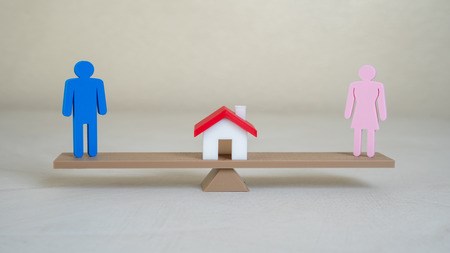When talking about property liens, there’s no escaping legal terms and phrases, which can make the subject somewhat difficult to understand. Essentially, explains attorney Fawzia Khan of Fawzia Khan & Associates, a lien may be described as “a right of retention which a person has over someone else’s property because of some contractual obligation. What this means, simply put, is that any person who has spent money on someone else’s property can hold onto that property as security until he or she has been compensated by the owner for what has been spent.”
Types of liens
There are different types of liens, or rights of retention over a property (retention meaning the continued use or control of the property): enrichment liens, contractual liens, and salvage liens.
Enrichment lien (also known as a real lien): applies when someone improves or preserves a property in a way that enriches its owner, and the owner has not yet paid. Example: A builder or contractor who has worked on a property but hasn’t been paid by the owner.
Contractual lien (also known as a debtor-creditor lien): arises from a contract between the lien holder and the owner. Example: A tenant (creditor) who has made improvements to the owner’s property, with an agreement that the owner (debtor) will compensate them — but hasn’t done so.
Salvage lien: applies when someone incurs necessary expenses to preserve someone else’s property, without any contract in place.
Types of improvements that apply
“It’s important to remember that even though a person may have spent a considerable amount of money improving someone else’s property, the ‘creditor’ will not necessarily be compensated for 100% of their expenses — even if they can produce invoices for every cent spent,” says Khan. “This is because the improvement must be classified as either a necessary, useful, or luxurious expense. Each of these categories carries a different set of claim allowances.”
- Necessary expenses: those required to preserve the property or prevent it from being destroyed.
- Useful expenses: those that, while not essential, enhance the value of the property.
- Luxurious expenses: those that add features to the property without improving its utility or necessarily increasing its value.
What compensation is allowed
Khan explains that compensation depends on the type of expense incurred.
As expected, all necessary expenses may be recovered in full. For useful improvements, the norm is that a person may recover either the amount by which the property’s value was enhanced or the actual amount spent — whichever is lower.
“If the improvement is deemed luxurious, the bona fide (genuine) possessor is generally not entitled to any compensation. However, they may remove the improvement — provided it can be done without damaging the property.
This is where things get more complicated, as compensation must be clearly defined.
Compensation is only payable if the improvement still exists, or where the necessary expenditure has served its purpose in preserving the property,” Khan explains. “For example, if repairs to a retaining wall are considered necessary, but heavy rains later wash the wall away, no compensation may be claimed.
“But be warned: a lien does not only apply where a contractual obligation exists. It may also arise in the absence of a formal agreement. A salvage lien is an example — such as when a tenant makes urgent repairs to prevent property deterioration.”
When a lien is (and isn’t) enforceable
Under South African law, a lien holder may retain control of the property until the debt is settled and the lien is released. If the debt remains unpaid, the lien holder can foreclose — meaning they may sell the property to recover the debt.
“Some liens have a deadline attached,” warns Khan. “If the lien holder doesn’t take legal action to extend the lien, it may expire. The law of prescription applies: if no legal action is taken within three years of the debt becoming due, the lien falls away and becomes unenforceable.”
A lien can also be declared invalid if it wasn’t properly filed, or the property owner may challenge it in court — which is often more costly than settling the debt.
“I recommend seeking legal advice the moment a property owner becomes aware of a lien on their property, as circumstances can vary widely,” concludes Khan.




